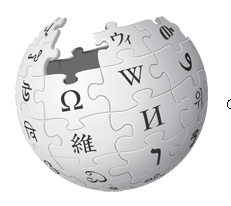Lydia Davis, whose new translation of Madame Bovary comes out September 23, blogs at The Paris Review Daily about why we need yet another translation of Flaubert.
(via The Millions)
Lydia Davis, whose new translation of Madame Bovary comes out September 23, blogs at The Paris Review Daily about why we need yet another translation of Flaubert.
(via The Millions)
David Foster Wallace’s archive, at the Ransom Center at the University of Texas in Austin, is now open to researchers.
So, if you can’t make it to Austin, TX, you can at least visit it online.

So says science Journalist Steve Silberman, by way of Rafe Colburn of r3c.org
If you’re curious about the historical context for the TV series The Pillars of the Earth, Wikipedia is an outstanding resource. On the other hand, if you’re writing a news story about outbreaks of infections caused by drug-resistant bacteria in hospitals, you shouldn’t rely on what you read in Wikipedia. Science journalist Steve Silberman writes about how spurious information sourced from Wikipedia is pervasive in stories about acinetobacter, and why that bad information could cost people their lives.
James Bridle, of booktwo.org, writes about how one entry in Wikipedia – The Iraq War – turned into a multi-volume set, 12 books in all. Basically, Mr Bridle, took all the edits to that one entry, made between Dec. 2004 and Nov 2009 and turned them into a 12-volume look into ‘flow of history,’ Wikipedia-style
This particular book—or rather, set of books—is every edit made to a single Wikipedia article, during the five years between the article’s inception in December 2004 and November 2009, a total of 12,000 changes and almost 7,000 pages.
It amounts to twelve volumes: the size of a single old-style encyclopaedia. It contains arguments over numbers, differences of opinion on relevance and political standpoints, and frequent moments when someone erases the whole thing and just writes “Saddam Hussein was a dickheadâ€.
It is a rather fascinating concept and posting. Read it at booktwo.org. See his presentation on Slideshare. Or listen to his presentation at Huffduffer [he presented at dContruct 2010].
Fur.ly, like bit.ly and tinyurl.com before it, is a URL shortener. But it also has a special feature: it will shorten multiple URLs into one URL. So if you want to share a gaggle or collection of links with a group of people, use fur.ly and share the fur.ly-generated link. It is that easy.
Here is an example: this fur.ly link [http://fur.ly/1rkj] will take you to my favorite reference sites on the web (answers.com, Internet Public Library, refdesk.com and Bartleby.com) in one fell swoop.
Just remember, Fur.ly is a good way to gather/aggregate info and make it easy to deliver.